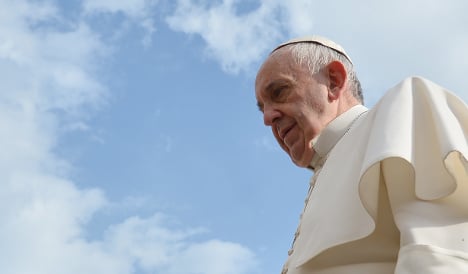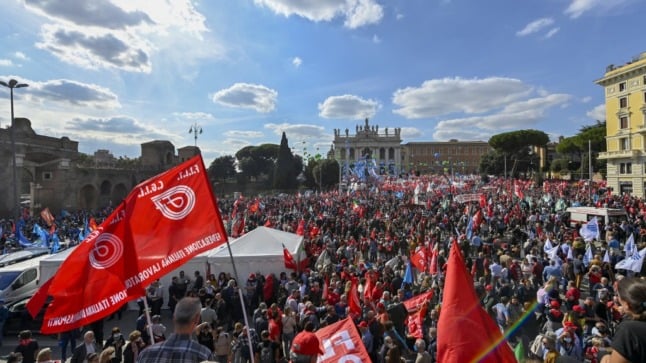The Vatican has been the focus of several controversies including the coming out of a gay priest and the leak of a controversial letter, while the pontiff himself ended up in the headlines for a gaffe which helped oust Rome's mayor.
“I want, in the name of the Church, to ask forgiveness for the scandals which have recently hit Rome and the Vatican. I ask you for forgiveness,” Francis said at the start of his weekly general audience on Saint Peter's Square.
“It is inevitable that scandals happen, but 'woe to that man by whom the offence cometh!'” he said, quoting a passage from the Bible.
Vatican expert Joshua McElwee writing in the National Catholic Reporter described it as an “extraordinary step”.
The 78-year-old has been presiding over a three-week global council of cardinals and bishops, where debates over the Church's teachings on the family have been overshadowed by tales of Machivellian plots and betrayal.
The leak of a private letter from rebellious cardinals has revived a cloak-and-dagger atmosphere likened Tuesday to the “Vatileaks” scandal in 2012, when Pope Benedict XVI's butler revealed fierce infighting in the highest echelons of the Church and allegations of serious fraud in the running of the city.
“There is growing concern at the Vatican over the multiplication of scandals and a return of the 'Vatileaks' syndrome,a climate of revelations, suspicion and rumours of a 'gay lobby' that helped convince Benedict XVI to resign in 2013,” religious watcher John Thavis said on his blog following the pope's mea culpa.
Francis may hope that his wide-sweeping apology will shame schemers in the centuries-old institution.
Rumours, accusations, denials
Vatican analyst Massimo Franco wrote in the Corriere della Sera daily that it appeared there was a bid to “recreate the climate of Vatileaks… an operation that's been planned for some time, and which aims at discrediting not the synod but the two years of the Argentinian pope”.
The council was overshadowed from the start by the surprise declaration of a Polish priest employed as a senior official at the Vatican that he was a practising homosexual.
Krzystof Charamsa was immediately fired but the coming out added fuel to a fire already raging between conservative and liberal wings of the Church over the divisive issue of its relationship to gay believers.
The pontiff was also drawn into the murky world of Italian politics this month after pointedly denying Rome's mayor Ignazio Marino had been invited on a papal trip to the states.
The perceived put-down was seen by many to have contributed to Marino's forced resignation last week.
Since his election in 2013, Francis has apologised on behalf of the Church to sex abuse survivors, for the persecution of protestants in northern Italy, and for complicity in the oppression of Latin Americans during the colonial wars.
His predecessor Benedict XVI was famously forced to say sorry to Muslims around the world after a speech in 2006 which sparked protests and violence in several countries.
But John Paul II made the most famous pleas for forgiveness, apologizing for the Church's silence during the Holocaust, the Inquisition, the Crusades, the Church's involvement in the African slave trade and the persecution of Italian astronomer Galileo Galilei – imprisoned for insisting the earth orbited the sun.






 Please whitelist us to continue reading.
Please whitelist us to continue reading.